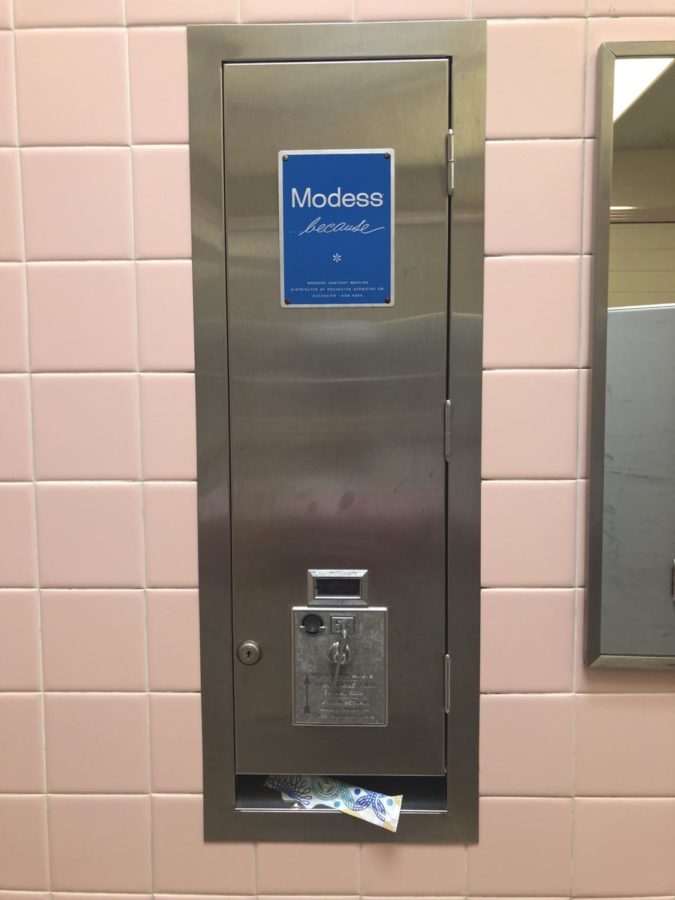Once a month
Students are required to pay for tampons within public domain
September 6, 2018
Moving forward and taking big steps from what society considers “taboos” has been on everyone’s agenda in 2018. Without consequences, periods are discussed on the daily with women sharing stories and tips on Twitter. Though it is becoming normalized and issues that women have with their periods are slowly becoming resolved, women are still fighting to remove luxury taxes from feminine hygiene products.
Feminine hygiene products are very necessary in the lives of women who menstruate; therefore, why is it so expensive to get a hold of? According to the Center for Menstrual Disorders, the majority of women have their period for 38 years. On average, women buy a box of panty liners ($4) and tampons ($7) each month causing to them spend roughly $5,016 in their lives. Now imagine other costs like pads, Advil, new underwear and pants.
That is a large number for women who have the money to buy these essential items. For women who are homeless and are also in need of these items, this price is far more inhibitive. Bustle, an online magazine for women, made a video on YouTube called, “How Do Homeless Women Cope With Their Periods?” They interviewed multiple women who live on the streets and asked them the same question: “How do you cope with your period?” The majority of the video focused on a woman named Kailah, who had lived on the streets since she was 12. She demonstrates how she rolls a tampon out of pads (which tends to be cheaper than tampons) or toilet paper from a bathroom in a public park.
Removing luxury taxes off of feminine hygiene product would be ideal. As of 2016, according to an article published by BBC, out of the 50 states, only 13 have dropped the tampon tax. The same article states that so far, “…Canada eliminated its national goods and services tax on menstrual products…” However, the tampon tax has been cut in other countries, such as France.
The fight to get rid of the tampon tax has been a long one. Women aren’t fighting for free hygiene products, women are fighting to be able to afford a necessity in 2018.









